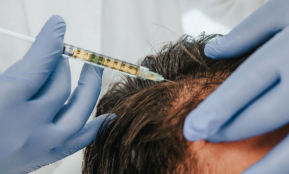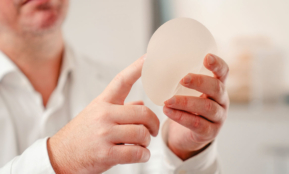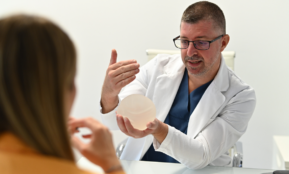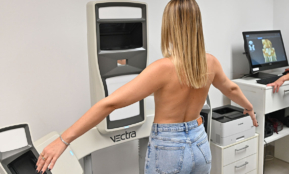Aesthetics
Face
The most modern facial treatments help you look younger, more elegant and happier.
Body
Feel comfortable in your body and correct sources of discomfort.
Chest
Make your wish for a better appearance come true and restore your self-confidence with aesthetic correction.
Hair and scalp
Minimally invasive solutions for hair loss and a natural look.
Issues
Find solutions to some of the most common aesthetic problems.
Treatments
Treatments

Hair and scalp mesotherapy

Thinning hair therapy with your own blood

Trichotest – DNA analysis of hair loss and baldness

Hair loss in women – causes and how to prevent it

Hair loss in men – causes and how to prevent it

Alopecia – hair loss
FACE

BODY

Implantology Center
Different methods of solving the problem of missing one or more teeth.
Prosthetics
The most common solution in cases of functional or aesthetic tooth damage.
Aesthetic Dentistry
Harmonious tooth shaping and tooth color correction according to your wishes.
General Dentistry
Modern and timely diagnostics, treatment and dental hygiene are the key to the health of your teeth.
Issues
Find solutions to some of the most common aesthetic problems.
About us
Locations
How a toothless jaw affects chewing and speech
-
Impact on chewing
Teeth are essential for properly grinding food. When all teeth are missing, the ability to chew is significantly reduced, making it difficult to break food down into smaller pieces. This can lead to digestive problems because food is not processed sufficiently before it reaches the stomach.
Without teeth, chewing hard, crunchy, and fibrous foods becomes very difficult or nearly impossible. This often leads to the avoidance of certain foods such as meat, vegetables, and fruits, which can result in a lack of important nutrients in the diet.
Without teeth, pressure during chewing is transferred directly to the gums and jawbone, which can cause discomfort, pain, and over time accelerate bone resorption. -
Impact on speech
Teeth play a key role in shaping sounds, especially when pronouncing sounds like "s," "z," "f," "v," and "t." Without teeth, the tongue and lips lack the support they need, which can lead to slurred speech and difficulty making those sounds.
Due to missing teeth, patients often have to adjust the position of their tongue and lips, which can cause stuttering or distorted sounds. This can make verbal communication difficult and reduce the clarity of speech.
Pronunciation problems often cause discomfort and insecurity, which is why people with edentulous jaws may avoid conversations, especially in social situations.
Advantages and disadvantages of dentures
-
Advantages
Dentures help restore chewing function, allowing patients to eat a wider range of foods again. This is especially important for people who have lost most or all of their teeth and have difficulty eating.
Dentures restore the appearance of a smile and support the cheeks and lips, contributing to a more natural and youthful appearance of the face. This can increase self-confidence and improve quality of life.
Dentures are often more affordable than other prosthetic solutions such as implants, making them more accessible to a wider range of patients.
The process of making and installing dentures is relatively quick, which means that patients can receive dental replacements in a short time.
-
Disadvantages
Removable dentures are often not as stable as fixed prosthetic solutions such as implants or bridges. They can move, irritate the gums, or create discomfort during speech and chewing.
Dentures do not provide the same chewing strength and efficiency as natural teeth or implants. Patients may have difficulty chewing hard or sticky foods.
Dentures must be removed, cleaned, and maintained regularly to keep them in good condition and to prevent infections or bad breath. This requires extra time and attention to daily oral hygiene.
Because dentures do not stimulate the jawbone like natural teeth or implants, over time jawbone resorption (loss) can occur, which can cause changes in facial shape and decrease denture stability.
Implants as a permanent solution for a toothless jaw
Implants represent a modern and permanent solution for the edentulous jaw, offering numerous advantages compared to traditional prosthetic solutions.
Dental implants are artificial tooth roots, usually made of titanium, that are placed in the jawbone to support prosthetic replacements such as crowns, bridges, or dentures. They integrate with the bone through a process known as osseointegration, creating a solid support for the replacements.
Implants provide a solid and stable foundation for prosthetic replacements, allowing for normal chewing and speech. They function similarly to natural teeth, which improves the quality of life of patients.
Implant placement stimulates the jawbone, which helps prevent bone resorption that often occurs in patients with edentulous jaws. This helps preserve the shape of the face and reduces the risk of additional problems.
Implant patients typically experience improvements in daily activities, including eating, speaking, and interacting with others. This can have a significant impact on their emotional well-being and self-confidence.
Maintenance of dental prostheses and implants
-
Brush your teeth regularly.
Brush your teeth at least twice a day – in the morning and before bed, using a soft-bristled toothbrush and toothpaste that contains fluoride.
Brush for at least two minutes and pay attention to all surfaces of your teeth – the outside, inside and chewing surfaces. -
Use dental floss daily.
Dental floss removes plaque and food debris from between teeth and below the gum line, an area that a toothbrush cannot reach.
Floss at least once a day, ideally before brushing in the evening. -
Use mouthwash
Antibacterial mouthwash helps reduce plaque, bacteria and bad breath. Look for water that contains fluoride for extra protection against tooth decay.
-
Proper nutrition
Avoid foods that are too sweet and acidic, such as sweets, carbonated drinks, citrus fruits, and juices, as they can cause cavities and damage enamel.
Eat balanced meals with plenty of fruits, vegetables, whole grains, lean proteins, and dairy products, which are rich in calcium and strengthen teeth. -
Visit the dentist regularly.
Visit your dentist at least twice a year for a professional cleaning and checkup, even if you have no visible problems.
Regular check-ups help in the early detection and treatment of problems such as cavities, gum disease, or other oral problems.
TREATMENTS
List of services that can solve the problem *I have a toothless jaw*
BLOG SUGGESTION


















